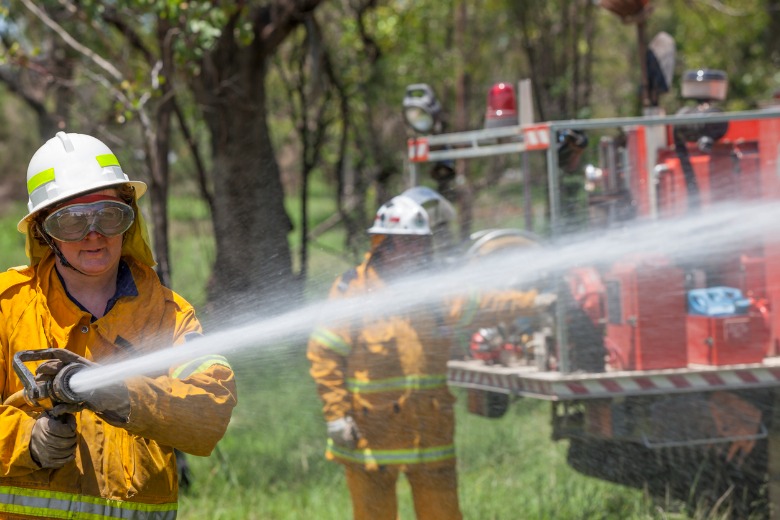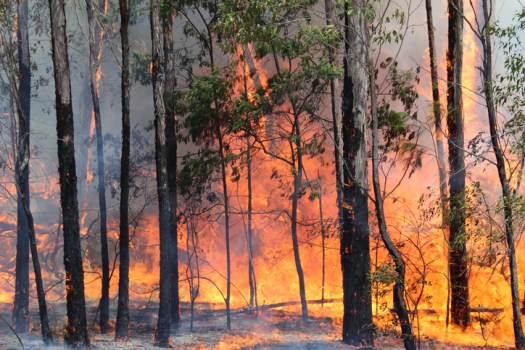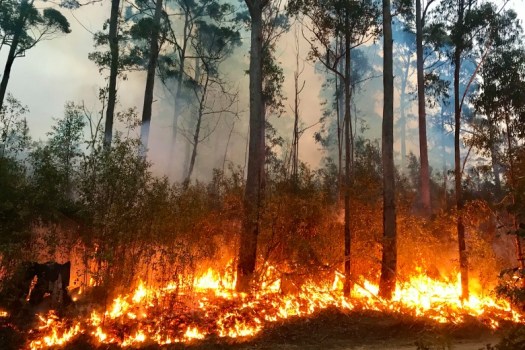
By 2029 almost 2000 appliances held by the NSW Rural Fire Service will have outlived their service life and it will cost almost $500 million to replace them.

Yet it’s dubious whether the RFS has done any strategic fleet planning or is systematically assessing its capability to respond to current and future bushfire risks, a report has found.
The state’s Auditor General has identified problems in how the ageing firefighting fleet is being managed and maintained, with confusion about the respective responsibilities of RFS and councils, inadequate record keeping, poor communication and under-resourcing of local government.
Fleet maintenance responsibilities
Local councils have legislated ownership of most of the land-based firefighting fleet, including a range of responsibilities to carry out maintenance and repairs.
The RFS has 73 service agreements with local councils or groups of councils, but 63 per cent of those haven’t been reviewed in the last ten years, the audit found.
“When these agreements are not reviewed periodically, there is a risk that they become outdated, and do not reflect service arrangements,” Deputy Auditor General Ian Goodwin says in his report released on Monday.
Three councils, Hawkesbury City Council, Wagga Wagga City Council and Uralla Shire Council were selected as case studies for the audit.
Fleet production not keeping pace with demand
Firefighting fleet production is not keeping pace with fleet replacement requirements, the report says, with councils waiting up to three years for new appliances to arrive.
“The RFS is lacking an overarching strategy to guide its planning, procurement, or distribution of the firefighting fleet,” the report says.
The RFS is lacking an overarching strategy to guide its planning, procurement, or distribution of the firefighting fleet.
NSW Auditor General
“The RFS does not have a protocol to review its service agreements with local councils to ensure they are accurate and reflect current fleet servicing and maintenance practices.”
There’s also no formalised process for communication about fleet management and maintenance between the RFS and local councils.
Question mark over District Service Agreements
The audit found the RFS is failing to ensure the accuracy of District Service Agreements with local councils, where maintenance responsibilities are described.
“The RFS does not have a framework to ensure that District Service Agreements with local councils are accurate,” the report says.
The RFS does not have a framework to ensure that District Service Agreements with local councils are accurate.
NSW Auditor General
“When District Service Agreements are not reviewed periodically, there is a risk that neither local councils nor the RFS have clear oversight of the status of fleet servicing, maintenance, and repairs.”
Poor communication
The RFS lacks an effective systems for communicating with brigades and local councils about fleet management, the report says. As a result, records are not always updated, and as of mid-2022, the data manager position at RFS Headquarters was vacant.
Councils also use different databases and systems to record fleet assets, the audit found, and all three councils that were interviewed for the audit had different systems to record fleet information.
The audit also notes local councils have varying levels of resources and capabilities to manage the administrative tasks associated with the firefighting fleet.
It says the RFS provides funds to councils to assist with maintaining the firefighting fleet, but doesn’t receive fleet maintenance cost information from all local councils.
$23m not properly accounted for
Each year the RFS gives councils a lump sum for repairing and maintaining the firefighting fleet. In 2020–21, approximately $23 million was provided.
Ninety councils received an average $257,000 lump sum funding in 2021, with individual amounts rangingfrom $56,200 to $1,029,884. Itemised information about how the money was being spent was inconsistent, Mr Goodwin said.
The RFS has not taken steps to require local councils to provide itemised maintenance costings for the firefighting fleet. Thus, the RFS does not have a clear understanding of how local councils are spending their annual fleet maintenance funding allocations.
NSW Auditor General
“The RFS has not taken steps to require local councils to provide itemised maintenance costings for the firefighting fleet. Thus, the RFS does not have a clear understanding of how local councils are spending their annual fleet maintenance funding allocations.”
In 2021 the RFS and local councils held 6,345 operational firefighting appliances, according to the audit. In 2022, the average age of the appliances was 16 years. By 2029 1,908 appliances held by the RFS will have outlived their service life and it will cost almost $448 million to replace them.
The report makes a number of recommendations including establishing a fleet maintenance framework to ensure District Service Agreements with local councils are regularly updated.
Comment below to have your say on this story.
If you have a news story or tip-off, get in touch at editorial@governmentnews.com.au.
Sign up to the Government News newsletter

